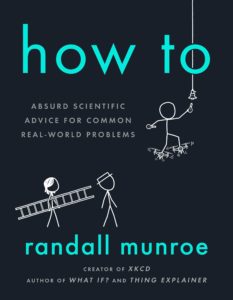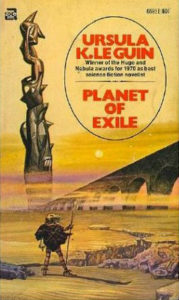Before this devolves into a rant on stupid Adobe products, let me first admit that I couldn’t read the entire book, as the first page of each chapter was entirely invisible to me. That said, I did very much enjoy what I did read, and Slay was exactly as good as expected where expected.
Very cool story about a fictional indie MMO? Check. Smart black girl protagonist with a messy love life? Check. Moral dilemmas involving but not limited to racism and the realistic ways these are resolved? Check. Slay is both the name of this novel and of the underground video game created by our heroine, Keira Johnson a.k.a. Emerald, and the development partner she’s never met, ign Cicada. Keira is a 17 year-old honors student who attends Jefferson Academy as one of the few black students there, along with her younger, popular (and arguably more sensible) sister, Steph. Her boyfriend is Malcolm, who Steph calls a hotep because that’s exactly what he is, Keira, Jesus. Keira’s best friend is Harper, a white girl with an annoying younger brother, Wyatt, Steph’s age.
A little over three years earlier, Keira got the idea for a cool card game/MMO that trades on the idea of Black Excellence. She taught herself how to program and went into partnership with someone she met on a message board, Cicada, to host, run and develop the game. Since then, Slay has become an underground phenomenon, a safe online place for black players the world over to game in peace without having to worry about the discrimination and hate speech rampant in so many other MMOs. But then a teenager is shot and killed in a dispute over Slay, bringing the game to mainstream attention. Accused of being racist (meh) and exclusionary (yeah but so?), Slay sparks off a firestorm that only worsens Keira’s guilt over the death to begin with.
As if that weren’t enough to stress over, Keira is waiting for an acceptance letter from Spelman College. Malcolm has already been accepted to Morehouse, and is waxing poetic about the life they’ll lead together in Atlanta. Keira finds herself conflicted and unsure as to why (insert Steph’s voice yelling “YOU KNOW WHY”) but the controversy over Slay pushes all thought of her love life to the back burner, especially when a troll shows up in the game and threatens to tear down everything she’s worked so hard to build.
The Black Panther parallels are obvious: Brittney Morris has stated that that was a direct inspiration and it shows, lovingly without being derivative. Ms Morris has also stated that she didn’t know a thing about coding when she started writing Slay. To this former IT person, that very much shows as well. The idea of only two people running a game as complex and popular and allegedly beautiful and detailed as Slay is probably the most fantastic part of this otherwise quite grounded story. I was also a little eh at the idea that the VR gear necessary to play didn’t automatically make this game the purview of the relatively well-off, which leads to another issue I had: how very American it all is. Ms Morris tries her best to include elements of African heritage from all over the world, and while some parts succeed, others feel more worthy of a “well, you tried.” One of the coolest things about the Black Panther movie is that America is neither the default nor the gold standard: I understand how hard that would be to translate to an American-based YA novel tho. That said, the most affecting parts of the book were when we got to look at the home life of Q.Diamond, and when Keira fiiiiinally saw through Malcolm’s bullshit. This is an excellent book that addresses a lot of real issues, and I’m super glad I got to read it.
What I’m not super glad about was the publisher’s decision to distribute advance copies using Adobe Digital Editions. I get it, Amazon is evil, but at least their mobis are easily readable and portable across platforms. ADE’s acsm standards are hot garbage. First off, ADE is incredibly user-hostile, to the point that I had to download a separate eReader on my phone in order to open the acsm link at all. Then I discovered that the first page of every chapter is missing, due to ADE being unable to handle drop cap illustrations. Unbe-fucking-lievably, I was told to open the acsm on my PC to be read with Acrobat, to which I should not need two different programs on two different devices in order to access the same fucking text, Adobe! Please, publishers, for the love of God, stop handing these people money until they come up with a product that actually enhances the reading experience. Mobis expire too, if you’re that concerned about timing out reading permissions. Adobe sucks. Please stop torturing your readers by forcing us to use their terrible products.










